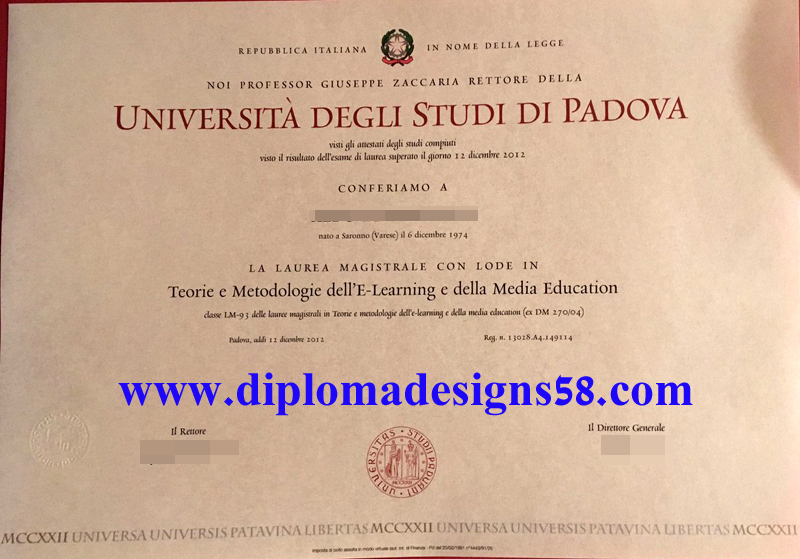Universita Degli Studi di Padova fake degree.buy fake diplomas.buy fake certificate

Where to buy a fake degree from Universita Degli Studi di Padova The ancient University of Padua was one of the great cultural centers of the West, along with the Universities of Bologna, Paris, Oxford and Cambridge. The University of Padua was founded in 1222 by a group of professors and students who broke away from the University of Bologna, which restricted academic freedom and failed to guarantee the basic civil rights of teachers and students.
The University of Padua was not founded by a papal mandate, but by accident and the social and cultural circumstances of the time. The University of Padua was administered by a free commune in the thirteenth century, by the Carrarese family in the fourteenth, and then by the Venetian Republic from the fifteenth to the eighteenth centuries. The motto of the University of Padua is "Universa Universis Patavina Libertas" (struggle for the freedom of all the people of Padua and the world).
The University of Padua initially offered courses in law and theology, but later added medicine, philosophy, astronomy, grammar and rhetoric. In 1399 the University of Padua split into two universities: Universitas Iuristarum (teaching mainly civil law, religious law and theology) and Universitas Artistarum (teaching mainly medicine, philosophy, grammar, dialectics, rhetoric and astronomy). In 1813, the two universities were reunited to form the University of Padua.
The University of Padua was originally founded as a free society of students, run by the students themselves. The students drafted their own school rules, elected their own principal and teachers, and set teachers' salaries. In the fifteenth and sixteenth centuries local authorities gradually took control of the schools from the students.
It was not until the eighteenth century, when the University of Padua was taken over by the Venetian Republic, that it developed greatly and its fame reached its peak. Padua's progressive philosophy, school of anatomy and medicine, and the development of astronomy, physics and mathematics during Galileo's eighteen years (1592 -- 1610) contributed greatly to the scientific revolution. Among padua's notable achievements are Gian Battista da Monte (nicknamed Montano) 's modern medicine, the Botanical Garden opened in 1545, the anatomical laboratory inaugurated in May 1594, and Andrea Vesalio, Gabriele Falloppio, New anatomical discoveries by G. Fabrici D 'Acquapendente et al. In addition, the University of Padua has made remarkable achievements in other fields, such as the progressive philosophy proposed by Paolo Veneto, Gaetano da Thiene, Nicoletto Vernia, Piero Pomponazzi and Iacopo Zabarella, There are also academic papers published by law school students, which offer many new ideas and are widely praised by the national management in Europe.

 Diploma tracy
Diploma tracy 1098969551
1098969551
 USA
USA UK
UK CAN
CAN AUS
AUS SG/MYS
SG/MYS OTHER
OTHER